‘The Wolf of Wall Street’: A Comedic and Chaotic Masterwork
- edgemonlogan
- Dec 5, 2019
- 4 min read

Over 40 years into an already legendary career, Martin Scorsese teamed up with Leonardo DiCaprio for the fifth time for the epic, biographical comedy The Wolf of Wall Street. Unlike any film he had ever made before, The Wolf of Wall Street was equal parts comedy and crime drama, and it was the latter category that Scorsese had made a staple in his films, but it was the outrageous story of greed and arrogance that made the film so different.
The Wolf of Wall Street came at a very experimental period of Scorsese’s career in the early 2010s, following the likes of the psychological thriller Shutter Island and the fantasy adventure Hugo. It was an exciting time - experimental Scorsese, who would’ve thought? Where would he go next? The project first started circulating in 2007 when DiCaprio and Warner Brothers won a bidding war for Jordan Belfort’s memoir 'The Wolf of Wall Street'. The project eventually went to Paramount Pictures, marking the fifth team-up between Martin Scorsese and Leonardo DiCaprio. The film's real-life inspiration is a truly unbelievable one, and the memoir promised a story unlike anything Scorsese had ever tackled, detailing the glamour and greed of Wall Street told through the eyes of a young and ambitious stockbroker.
The film boasted a young and sleek cast, including the likes of Jonah Hill, Margot Robbie, Kyle Chandler, and Jon Bernthal, all of whom show off some fantastic comedic and dramatic acting chops. The film's anchor of course, though, is DiCaprio, the titular "Wolf of Wall Street". His best performance up until that point and possibly still to this day, Leo’s performance as Jordan Belfort is perfect, brimming with charisma, confidence and a sense of power. It oozes off the screen, and although he is a really bad person, you can’t help but root for Jordan. Leo imbues the character with a sense of ambition and power that makes him seem unconquerable, even later on in the film, when Belfort eventually does lose everything.

It is also one of the funniest performances of all time. One particular scene involving Leo succumbing to an extremely powerful and sudden high is quite possibly the most brilliant piece of physical comedic acting. This was a different, riskier role for Leo. Generally a stranger to “evil” characters, save for the ruthless Calvin Candie in Django Unchained, Leo really gets to flex his abilities playing a truly despicable person here. All this makes for what might be the most unique film Leo and Scorsese have collaborated on, as they both tread into some unknown territories.
The Wolf of Wall Street transcends your typical biopic structure and narrative, jumping forward and backward in time on a few occasions, and often time-jumping forward two or three years in between scenes. It also focuses on a very specific section of Belfort’s life, rather than the whole enchilada. The film is also given another layer of hilarity and misconstrued point-of-view as Belfort narrates the film, all of which plays out as he probably remembers it to be like, by the way. The film is very fast-paced, and it makes the daunting run time of a hair under three hours seem way shorter.

Long-time Scorsese collaborator, editor Thelma Schoonmaker shines here, injecting this film with a lightning-fast pace and razor-sharp editing, making a movie directed by a 71-year-old man seem like it could’ve been made by college frat kids, which is exactly how it needed to be. The film is very similar to Goodfellas in all these regards. Following an ambitious social climber who doubles as an unreliable narrator, a decade-plus spanning timeline, and very fast pacing making for an extremely enjoyable watch, both for casual moviegoers and die-hard cinephiles.

It doesn’t hit you until the very end that The Wolf of Wall Street is a classic rag to riches… back to rags tale. As the film draws to a close, the once-unstoppable Jordan Belfort - a now formerly incarcerated broke spending his time at boring sales training seminars - is presented as a shell of sorts. A man full of longing for the past and the glory days. This is a theme that Scorsese has returned to time and time again. Most recently, and under radically different circumstances, in The Irishman (which would be a great companion piece to The Wolf of Wall Street). The ending is also a reminder that people like Belfort will always exist, and there really is no way of stopping them. They will always influence and get what they want, as he so glamorously did for many years.
Questioning anything Martin Scorsese chooses to direct at this point is just absurd when he can crank out movies like this in his 70’s. He’s one of the greatest of all time, that’s indisputable, and amongst a sea of masterpieces, The Wolf of Wall Street stands out as his most outrageous, funny and daunting accomplishment to date.
A crime epic of staggering proportions, a film that can have you rolling around in tears from laughter and on the edge of your seat two seconds later, this is the type of film that would be the highest of highs in any other directors' filmography. But to Scorsese, it’s just another addition to one of the most respected and acclaimed catalogs of all time. This is the type of film that comes along so very rarely. It is calculated and crafted so precisely, that it would be a sin to ever not recognize it as such, and it deserves every ounce of praise. Accompanied by gangster crime dramas, fantasy adventures, wealth status period pieces, boxing movies, and religious epics, The Wolf of Wall Street is a beast of its very own special, anxeity-thrilling, cocaine-induced kind.
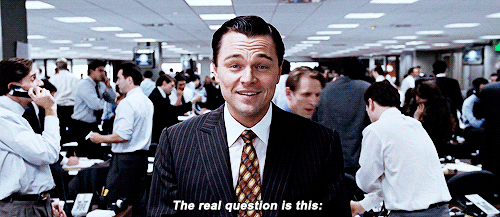
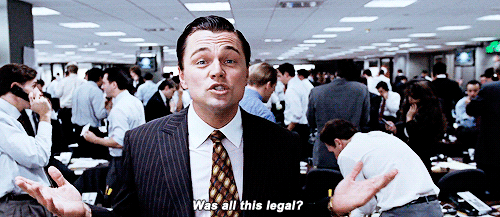
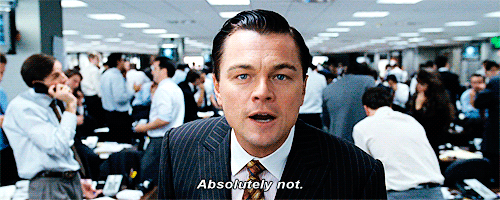
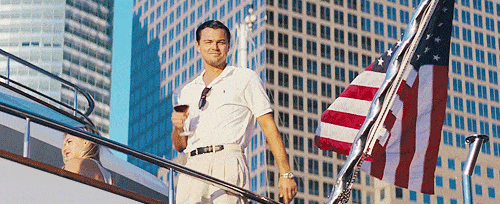


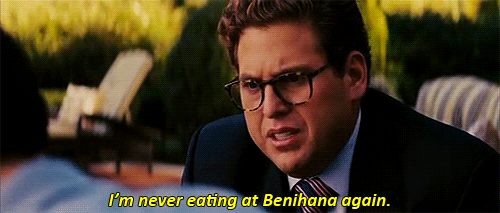
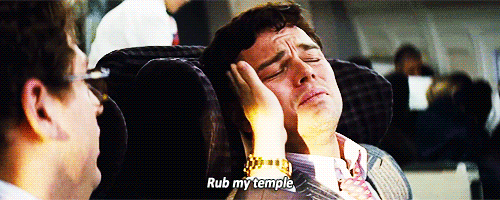
![[Review] 'The Way Back': An Inspiring Story Courtesy of Ben Affleck](https://static.wixstatic.com/media/19b81c_34d726e20b62424483b02f588e47b9d8~mv2.jpg/v1/fill/w_780,h_438,al_c,q_80,enc_avif,quality_auto/19b81c_34d726e20b62424483b02f588e47b9d8~mv2.jpg)

![[Review] 'Swallow': A Haunting Character Study of a Powerless Woman](https://static.wixstatic.com/media/320618_4e5e9cf0de2140eba578fa74d0b7c5f8~mv2.png/v1/fill/w_980,h_408,al_c,q_90,usm_0.66_1.00_0.01,enc_avif,quality_auto/320618_4e5e9cf0de2140eba578fa74d0b7c5f8~mv2.png)

Comments